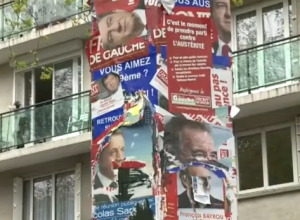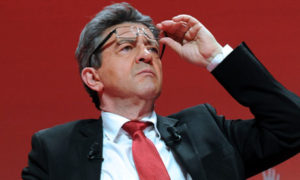 Approximately every two, four, or five years depending on the country some sort of elections are taking place. Elections have been described as the epitome of democracy; yes, but only to a certain extent. Let’s face it, elections have simply become a nightmare as they too often remind citizens about the inaptitude of elected officials to debate, and lay out a strategic vision.
Approximately every two, four, or five years depending on the country some sort of elections are taking place. Elections have been described as the epitome of democracy; yes, but only to a certain extent. Let’s face it, elections have simply become a nightmare as they too often remind citizens about the inaptitude of elected officials to debate, and lay out a strategic vision.
With the first round of the presidential election in France – taking place today abroad and tomorrow in France –, it is difficult to feel the connection with any of the  candidates. The ideological range swings from racist to anti-capitalist with no attractive programs and/or candidates. As a French citizen, in my lifetime, I have never encountered a politician with a vision. Messrs. and Mesdames Chirac, Hollande, Sarkozy, Le Pen, Mitterand, Mélenchon, Bayrou, Joly, Jospin, Royal and others have all failed the test.
candidates. The ideological range swings from racist to anti-capitalist with no attractive programs and/or candidates. As a French citizen, in my lifetime, I have never encountered a politician with a vision. Messrs. and Mesdames Chirac, Hollande, Sarkozy, Le Pen, Mitterand, Mélenchon, Bayrou, Joly, Jospin, Royal and others have all failed the test.
The real question is: why is it so difficult to have a vision? As per Robert Cooper in an outstanding article, Hurbis and False Hopes, published in Policy Review, he declared that:
Government is a trinity of power, rules, and politics. And the greatest of these is politics. It changes its shape with time and place. It needs leadership, debate, vision, trust, compromise, consent, solidarity; it must appeal to the heart as well as the mind, to the past as well as the future. It is built of institutions and sentiment, of hierarchy and equality, of interests and altruism. Politics tames force and civilizes power.
As a student of politics, I can only dream from philosophical books and look back with nostalgia to men like Jean Monnet, Robert Schuman, Jacques Delors, Charles de Gaulle – to a certain extent –, and wonder if I’ll ever have the chance in my life time to vote for an inspirational and visionary leader.
This 2012 presidential race, not talking of the previous ones, has proven to rank quite high on the meter of poverty of ideas, visions, and dialogues. The same old narratives of globalization and Europe as being the enemy to France’s greatness and identity; mass immigrants stealing the job of true Frenchmen and changing French identity; the gap between the haves and the havenots; and so on are quite tiring. The status quo in the political debate is the reason of the decline of France’s power, not globalization or Europe. New questions need to be asked and strategies need to be laid out.  This does not go through an anti-capitalist approach as promoted by several candidates and especially the rising star, Jean-Luc Mélenchon. The real problem is that nobody has asked the real questions: How can France become more competitive on the international stage? Why is Europe not the problem, but the solution? Why is the transformation of France’s culture and identity a good thing to its survival and its soft power? How can all the different ethnic groups of France society form one or several nations under the Republic? How can the power of citizens be increased in order to limit government officials’ influence? How to balance social responsibilities with the rigid welfare state?
This does not go through an anti-capitalist approach as promoted by several candidates and especially the rising star, Jean-Luc Mélenchon. The real problem is that nobody has asked the real questions: How can France become more competitive on the international stage? Why is Europe not the problem, but the solution? Why is the transformation of France’s culture and identity a good thing to its survival and its soft power? How can all the different ethnic groups of France society form one or several nations under the Republic? How can the power of citizens be increased in order to limit government officials’ influence? How to balance social responsibilities with the rigid welfare state?
Until the results of the first round of the French presidential elections become official, it will be another painful exercise as it has already been three times in my life. What is certain is that the political debate in France is embedded in nostalgia and entitlement without any vision. It is time to look forward.
I will be reporting on Sunday evening after the official results of the first round.
Pictures:
French presidential election 2012 posters – against the rules (screenshot BFM TV)
Jean-Luc Mélenchon at a campaign meeting in Lille. Photograph: Francois Lo Presti/ AFP/Getty Images